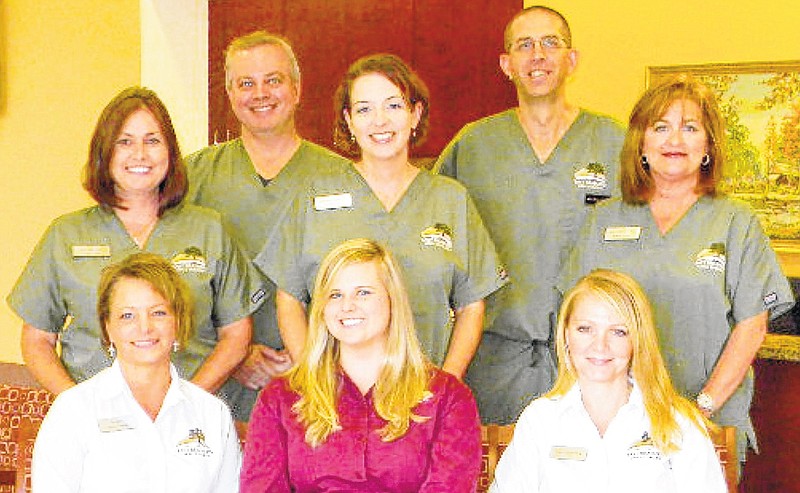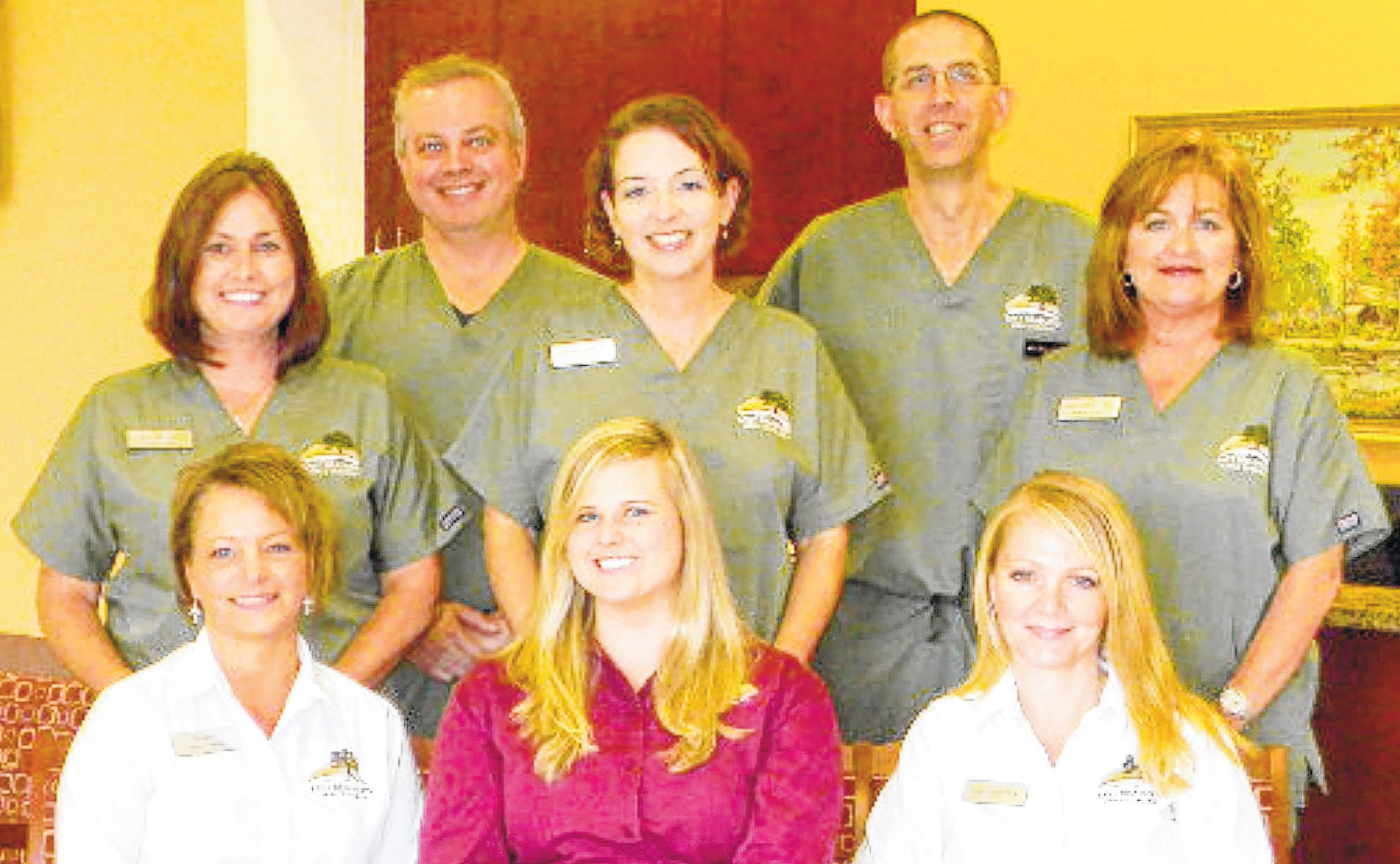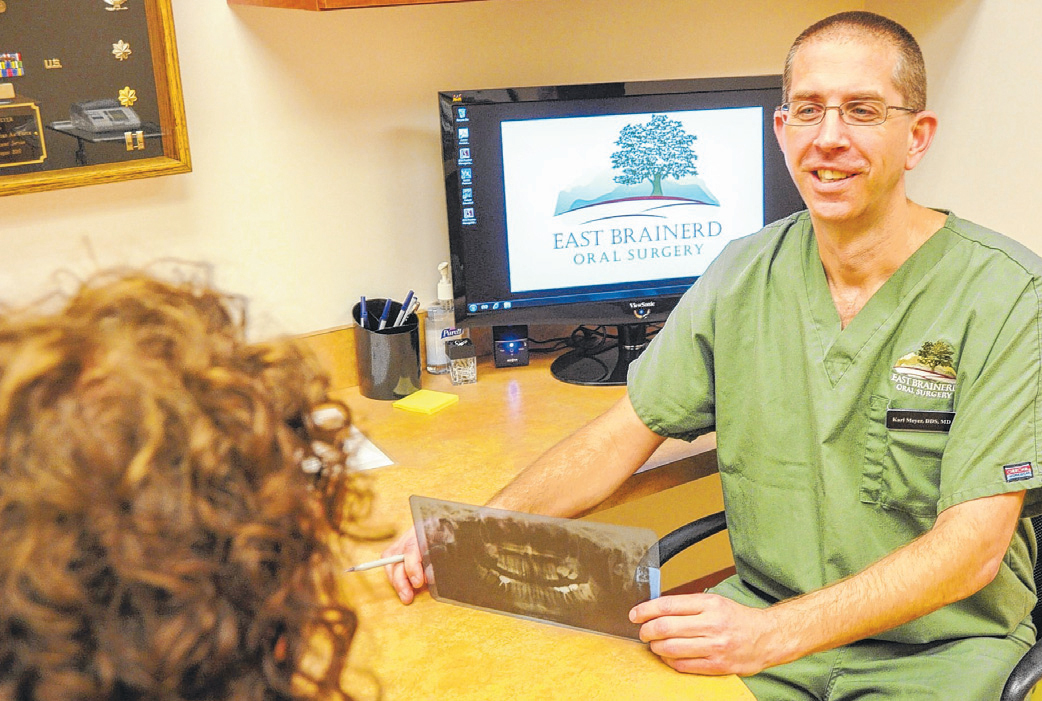Sure, the surgeons at East Brainerd Oral Surgery reconstruct faces after trauma and diagnose rare mouth diseases, but every summer the practice has more routine task at hand: removing wisdom teeth.
"Summertime is when a lot of teenagers get their wisdom teeth taken out," said marketing manager Betsy Childress. She said those four huge teeth, two on top and two on bottom, are really molars that show themselves when patients are between 17 and 25 years old. "They usually come in as adolescents mature into adults-"the age of wisdom", Childress said.
Though wisdom teeth can be removed safely later, Dr. Bill Childress said, older patients usually have a longer recovery time. The American Association of Oral and Maxillofacial Surgeons recommends removing the teeth by age 26, citing new studies that show older patients are at risk for "incomplete" healing including nerve damage, which requires additional treatment.
But does that mean everyone has to have surgery to remove their third molars? "The short answer is no," Dr. Childress said. But he said a wise decision can be made only after consulting with an oral surgeon and your regular dentist. He said some mouths simply don't get wisdom teeth and others have plenty of room for all the teeth to grow and live healthily. The danger, he said, is when hidden molars develop close enough to the gum surface to entice bacteria to infect them, over time causing decay and even bone loss or life-threatening infection.
"It is important to remember that the absence of pain or other symptoms does not equal absence of disease," Dr. Childress said. AAOMS also cites studies begun almost 50 years ago showing that nearly 25 percent of people who still have their wisdom teeth but don't have symptoms of disease do, in fact, have diseased teeth that need attention or the disease could spread.
Bill Childress, DDS, MD, and Karl Meyer, DDS, MD, at EBOS also see a many patients for dental implants when a tooth is missing or needs to be pulled. Implants are titanium tooth root replacements, surgically set into the space left when a tooth is lost. A better result is achieved with implants as opposed to traditional dentures, which are held in place with adhesives.
Dr. Karl Meyer said dentures with adhesives only work 10 percent as well as natural teeth do. Dr. Childress and Dr. Meyer met in the Air Force in 1994, and retired from active duty in 2010, when they moved to Chattanooga to open East Brainerd Oral Surgery, off East Brainerd Road, at Mackey Branch Drive.
Their Air Force experience gave them the task of reconstructing faces of soldiers wounded in Iraq and Afghanistan. While cement that holds prosthetic ears and eyes in place may waver in hot or damp weather, bone implants don't lose their grip.
Dr. Childress and Dr. Meyer said the Air Force program gave them access to rare surgeries. For example, a $30,000 surgery to repair an underbite or overbite may not be covered by civilian medical insurance, but the Air Force saw more than 200 of these a year.
East Brainerd Oral Surgery's doctors and staff are very welcoming to their patients. The practice is relatively new in town, but these professionals have been at their craft for a long time.
Their patients realize the great benefit of their doctors' broad experiences. "The only thing new here is the building," Dr. Childress said. Doctors and staff take the time to explain each surgery, answer questions and check up on patients afterward, a combination that relieves anxiety "better than Valium," said Dr. Meyer.
Drs. Meyer and Childress both offer their services to as many people as they can, volunteering with Remote Area Medical traveling clinic program a few times a year, and also at the Roy Mercy Dental Clinic at 1800 Roanoke Avenue.
The Mercy Dental Clinic is a joint effort between the Chattanooga Area Dental Society and Hope for the Inner City. East Brainerd Oral Surgery is located at 1350 Mackey Branch Drive, Suite 110, and can be reached at (423) 296-8210. For more information, including videos and success stories, visit www.EastBrainerdOMS.com.


